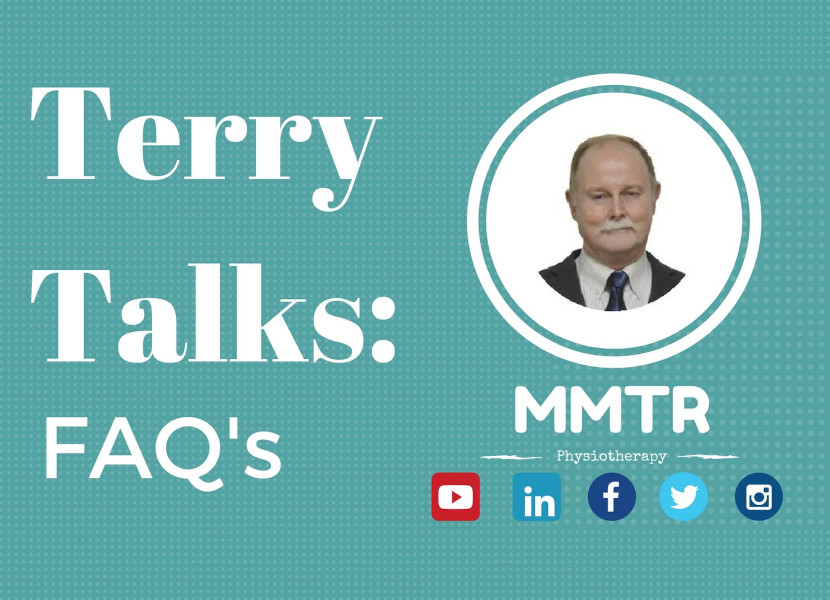Video transcription:
For this edition of Terry Talks, Terry tackles a few of the most frequently asked questions that we receive from patients and their friends and family.
Do you have to hit your head to get a concussion?
That is a popular misconception, which is actually a belief from the 1950’s and 60’s. No, you can actually have a whiplash motion which moves the head, and that movement causes the brain (which is floating is fluid), to slosh back and forth against the skull. So you can have what they call a coup contrecoup, which is basically when the brain hits the front and then the back of the skull. So no, just even neck movement, an abrupt movement, can cause a concussion.
How can you protect yourself from a concussion?
The best way to protect yourself is actually to have strong neck muscles. They know from a study done in the 80’s, for instance, a study done at Syracuse University with Dr. Cantu that the more they strengthened the neck of football players, they decreased the number of concussions by 50% – an enormous amount. And yet, it was ignored for decades. We see exactly the same thing here; even people who have had concussions and have fixed their neck and are in really good shape, people can still have impact where they don’t necessarily get any concussion. The neck is the suspension for the brain.
How long should you rest and avoid stimuli after a concussion?
Well, I have always been a bit vocal on this because I have found out over the last 30 years, I knew that the longer people rested and recovered and went without stimuli, the worse it was and the harder it was to get them better. And I have been preaching that for a very long time but it fell on very deaf ears. The international consensus this year finally said that maybe one to two days is adequate rest. They finally recognized the obvious. They say that maybe one to two days and then you should be going out for walks; just gentle exercise. Now they are saying this because they have observed that people do get better this way, but let’s think of it logically – straight logic. So the neck has to get injured if you have a concussion, you can’t not have the neck involved, it’s impossible. And if you stop a person moving, what do you think is going to happen to the neck? If it is injured, it is going to tighten. Not only will it tighten, but the the longer you have the person in rest and recovery mode, the neck muscles lose strength and endurance, which makes it harder and harder to get them better.
What does movement in the first few days after a concussion do?
Well, when you are moving, you are increasing blood flow to muscle. When you increase blood flow, muscles relax. And you are not allowing muscles to stay in one position where they just contracts harder and harder. So the increased blood flow and even just gentle movement is moving, stretching and increasing blood flow to the neck and you won’t lose your strength and endurance. So for the person who is moving after concussion, the probability of recovery and rate of recovery is much, much better.
I have had a few concussions, am I at risk for CTE?
CTE is chronic traumatic encephalopathy. Now, the individuals that they have noted get this, get literally hundreds of concussive or subconcussive blows to the head. It isn’t like there are three or four or five…there are hundreds, and with pro athletes, often thousands. So I think that if you are talking about someone who has had, say, ten concussions, the probability of them developing CTE is very very low. Now, you don’t want to take the risk because you don’t want to cause damage to the brain, but you most certainly don’t want that thought in your mind, otherwise the stress of that thought can be damaging. By the way, I get this constantly from people who have had two or three concussions who are sure they are going to get dementia or brain deterioration like pro athletes. It is an enormous fear right now which actually exacerbates the whole condition.
So thanks for watching Terry Talks today, hopefully it has given you a few answers or at least made you think of things a bit differently.

